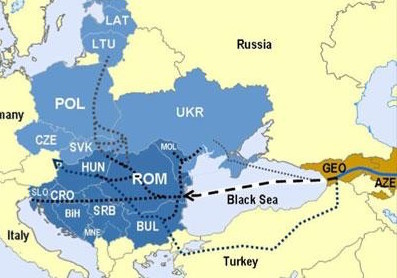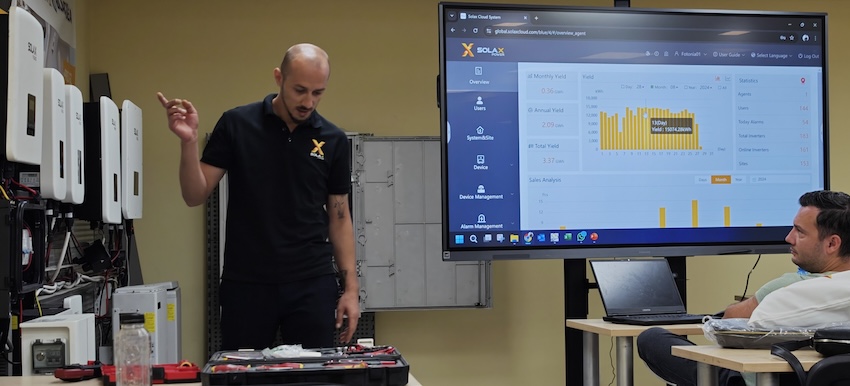Natural gas transport project AGRI gets Romania's support
June 24 2015

The AGRI gas project, as a direct
energy transport road from the Caspian Sea right to EU's
Franco-German industrial core, between Energy producer Azerbaidjan,
Georgia and Romania, is seen as a viable project. The feasibility
study for AGRI project, that aims to transport gas from the Caspian
region, on the territory of Azerbaijan and Georgia, crossing the
Black Sea by vessels and involving the construction of two
liquefaction terminals (on the Georgian Black Sea coast) and
regasification (on the Romanian Black Sea coast ) was presented in an
Inter-ministerial meeting that took place on June 22 in Bucharest.
The study shows two viable working alternatives, for two different capacities, namely 5 and 8 billion cubic meters of natural gas. Gas volumes are intended primarily to ensure consumption of Romania and Hungary, the rest being directed to other potential markets in Europe, highlighted in the feasibility study. "Today we signed a common declaration for the continuation of the project. This meeting was the occasion for the British company to unveil the feasibility study it conducted. The conclusions of this study show that we have two viable working alternatives, for two different capacities, namely 5 billion and 8 billion cubic meters of natural gas respectively. These figures can be improved and in a private meeting with the participating ministers we decided to continue developing this project also on technical bases that should enable the development and later increase in the capacity if needed. We believe that the AGRI project is a component of the southern gas corridor that may make an important contribution to the European energy security", Gerea said at the end of the meeting on the AGRI project and reported by Agerpress According to the Romanian energy minister, the project will cost the Romanian side roughly one billion euros. The Energy Minister of Azerbaijan Natig Aliyev said there were calculations for a third scenario based on a capacity of two billion cubic meters and the costs of the three alternatives ranged between two and five billion dollars. Gerea underscored that funding sources should be found for the project and other participants should be invited. In this respect, he stressed he had had talks in the last month with the energy ministers of Bulgaria and Serbia, who showed interest in the project, and that he was to meet his two counterparts in the next two weeks. The project was initiated in 2010 by a memorandum signed in Bucharest by Romania, Azerbaijan and Georgia, to which Hungary later joined.
The study shows two viable working alternatives, for two different capacities, namely 5 and 8 billion cubic meters of natural gas. Gas volumes are intended primarily to ensure consumption of Romania and Hungary, the rest being directed to other potential markets in Europe, highlighted in the feasibility study. "Today we signed a common declaration for the continuation of the project. This meeting was the occasion for the British company to unveil the feasibility study it conducted. The conclusions of this study show that we have two viable working alternatives, for two different capacities, namely 5 billion and 8 billion cubic meters of natural gas respectively. These figures can be improved and in a private meeting with the participating ministers we decided to continue developing this project also on technical bases that should enable the development and later increase in the capacity if needed. We believe that the AGRI project is a component of the southern gas corridor that may make an important contribution to the European energy security", Gerea said at the end of the meeting on the AGRI project and reported by Agerpress According to the Romanian energy minister, the project will cost the Romanian side roughly one billion euros. The Energy Minister of Azerbaijan Natig Aliyev said there were calculations for a third scenario based on a capacity of two billion cubic meters and the costs of the three alternatives ranged between two and five billion dollars. Gerea underscored that funding sources should be found for the project and other participants should be invited. In this respect, he stressed he had had talks in the last month with the energy ministers of Bulgaria and Serbia, who showed interest in the project, and that he was to meet his two counterparts in the next two weeks. The project was initiated in 2010 by a memorandum signed in Bucharest by Romania, Azerbaijan and Georgia, to which Hungary later joined.
Energy - Latest news





.jpg)